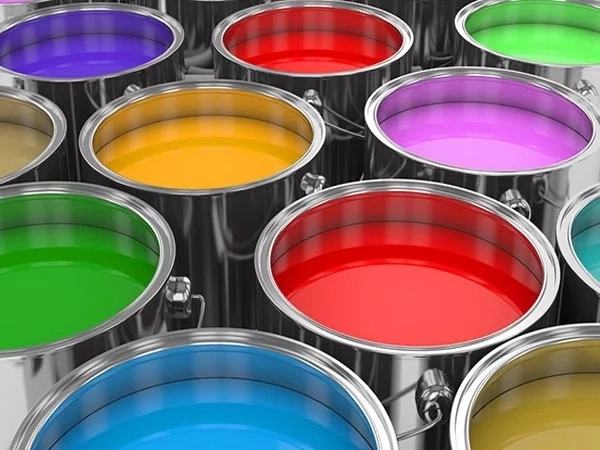By Charles Okonji
During his lecture at the biannual Coating Show of the Paint Manufacturers Association of Nigeria (PMAN), titled “Maximising the Opportunities of the African Continental Free Trade Area in Post-COVID-19 Era”, Dr. Oluwasegun Osidipe, the Director, Research and Advocacy Support Division, Manufacturers Association of Nigeria (MAN), said that Nigeria is the third highest paint exporter on the African continent.
Dr. Osidipe, who disclosed this at an event held in Lagos, noted that the country is ironically on the seventh position on the chart of countries that import paints in Africa, attributing this import ranking to the importation of special industrial paints used in oil and gas, as well as in the maritime sectors.
On the benefits of the African Continental Free Trade Area (AfCFTA) agreement, he noted that Nigeria must have a trade policy in place before signing trade agreements, stressing that a draft was submitted for the first time to the Minister of Industry, Trade and Investment.
He pointed out that the essence of a trade policy is to clearly define the area of interest, explaining that during negotiations, agreements must be signed in line with national aspirations.
Dr. Osidipe emphasized the need for the government to put the right infrastructure in place to enable Nigerian players to benefit from the trade pact.
“AfCFTA like any other agreement is not a playground for countries that have not been able to satisfy local demands. Nigeria must adopt strategies where we can have aggregations and that is part of the strategies that the Nigerian government is looking at where you aggregate the output of a number of SMEs so that you have the right quantity to which you can possibly trade,” he said.
Earlier in his welcome address, Ambolu Babatunde, the Chairman, PMAN, lamented the scarcity of foreign exchange for manufacturers, regretting that skyrocketing prices of raw materials and packaging inputs for pants are pushing the cost of production to the roof top.
Babatunde, noted that the sector is still bedeviled with myriads of challenges, while emphasizing that the sector and the members are yet to recover fully from negative effects of the COVID-19 pandemic.
“The industry is still struggling with the effects of the COVID-19 shutdowns in 2022. The sector is still being challenged by scarcity of foreign exchange, skyrocketing prices of paint’s raw materials and packaging inputs as well as sales of finished paint products. These bottlenecks have pushed the cost of production to the roof top.
“They have also made the business environment unfavourable and unattractive to investors. With these challenges, our products will be uncompetitive when the African single market eventually takes off.
“We appeal to the government to come to our aid by coming up with policies and programmes that will stimulate activities in the paints industry in particular and the manufacturing sector in general,” he said.
The PMAN Chairman assured paint users in the country and Africa that PMAN is committed to transiting to the reformulation/production of lead free paints for a healthy environment, saying that monitoring and enforcement are billed to commence soon.
In his speech, the Chief Executive Officer, Raw Materials Research and Development (RMRDC), Prof. Ibrahim Hussaini Doko, said the industry has grown and evolved over time, adding that the Nigerian paint industry is one of the largest Gross Domestic Product (GDP) contributors in the country and a major player in the employment of labour and economic advancement.
“The programme also provides a window to assess latest technologies and networking opportunities. This show is taking place at an appropriate time to showcase the capabilities of the Nigerians coating industry in value added products such as raw materials, machinery, finished paints, ink and allied products. It will also identify some gaps that might have hindered the country from assessing the benefits of the trade area. I want to use this opportunity to assure the key stakeholders in the coating industry that the Council will continue to collaborate with you in enhancing local raw materials for the industry,” he said.





Comment
No comments found.